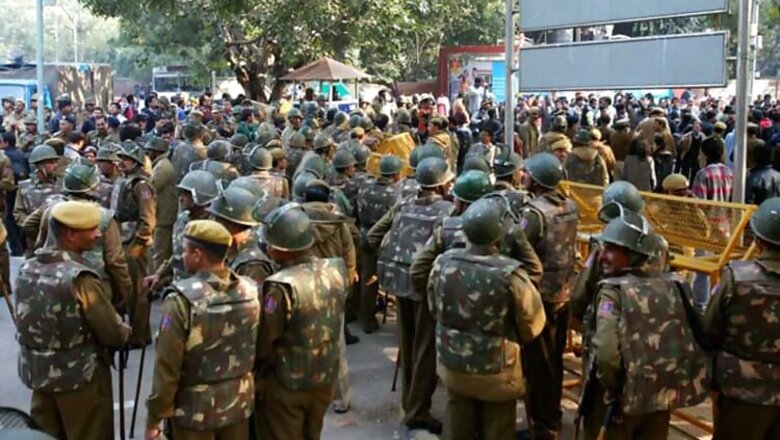
views
India is home to one of the largest police force in the world. While it is tasked with maintaining law and order, the Indian police force is also one of most abused lot of the country. From bribery to extortion to extra judicial killings, the personnel in khaki have been accused of all. But can we deny the fact that they continue to remain our first help when we are in dire need? Remember those carefree 'pandal hopping' on Durga puja or the roaming around on festivals like Diwali and Holi? Ever thought what keeps you guarded when the whole city enjoys holidays? Yes, the answer is – 'men in khaki uniform'.
We all love to see our week offs marked on our duty chart/roster. And in case it's a fixed weekend off, there's not much left to be asked for. But does the police force stop working? Forget off days, how does it feel when your boss, at times, asks you to stay back at work for a few hours longer than usual?
"I have no life" – probably this is what resonates in your mind. Now spare a moment and think about the lakhs of police constables and officials across the country. As per the rule, they work seven days a week, and it's rarely less than 12 hours each day. The reason given to justify this is they have the responsibility to protect all citizens and maintain law and order, and what they require to do is a 24x7 duty.
But does it happen everywhere across the world? Do police forces in other countries not have the responsibility to maintain law and order and prevent crimes day in and day out? They certainly ensure the same, but do not work on a seven-day-a-week system. Let's take a look at how police forces across the world follow a work schedule and duty timing to probably ensure a more efficient policing:
United States of America:
Various police departments in US follow a 40-hour weekly work schedule. While in New York, the police work in shifts of 8 hours 35 minutes, the Seattle Police Department follows a rotating schedule of 9-hour-long shift.
The NYPD officials' duty is arranged in a 15-day cycle of five work days-2 days off, followed by five work days-3 off days.
United Kingdom:
Most of the police departments in UK follow the European Working Time Directive, with specific shift schedule varying with each jurisdiction. For instance, the Kent Police Department works in both 8-hour and 10-hour shift, with the duration alternating every week. The department has enforced a maximum working time of 48 hours in a week. They also have the provision of at least one day off in a week.
Canada:
In Canada, the police stations work on a three-shift basis – a 10-hour day shift, 10-hour evening shift, and a night shift that is 8 and a half hours long. The working hours of shift are calculated on the basis of annualised hours, and not on monthly or weekly hour basis. The system enables police personnel to enjoy increased rest days resulting from longer shifts.
Australia:
Till 2009, the police officials down under followed a 12-hour shift system, but have switched to an 8-hour shift system since then.
South Africa:
The rule says that those in administrative duty must not work for more than eight hours each day, while others should perform a 12-hour-long duty everyday. But there's a cap, any official is not supposed to perform duties for more than 40 hours a week.
Apart from these, while the Tokyo Metropolitan Police Department in Japan works in four daily shifts, the Hong Kong Police officials work in three shifts a day.
If all these countries can implement a regulated time/work schedule for their policemen, is it really that impossible to put in practice in India? Shall we blame it on the high population of the country? We shouldn't ideally, as India boasts of the second largest police force in the world.
However, the strength factor cannot be ruled out completely keeping into consideration the available police per capita information. India has as many as 130 police personnel per 1 lakh people, which is less in comparison to all the countries named above. While Australia has 217 policemen, Canada has as many as 202 personnel per 1 lakh people. The per capita rate in various police departments of US and UK are also much higher than that in our country.
Though we cannot afford to ignore this crisis being faced by police forces across the country, we also cannot rule out the fact that a more humane and systematic approach would probably encourage our policemen to work in a more efficient manner, serving even more to the cause they are supposed to.




















Comments
0 comment